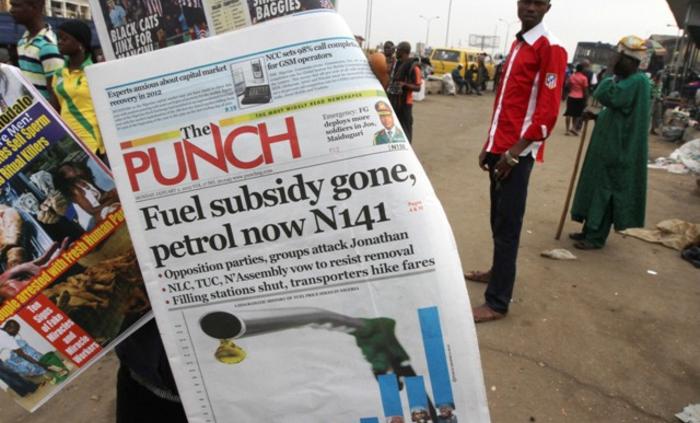Stepping back from the subsidy debate, it’s important to clarify what the debate the main issues are.
Is there a subsidy? Yes…
What is being subsidizing? The import cost of petroleum products? Yes but we are also subsidizing the inefficiency of the government, e.g. demurrage arising from having only one offloading port in Nigeria.
The only way to cut down the cost of paying subsidies is to reduce the cost of petroleum products and the way to do so is to refine locally. To refine locally means that refining companies can buy crude oil forward contracts to feed their refineries. At the moment, the process of buying crude oil in Nigeria is opaque, and I am being polite. To open up the crude buying process is to pass the PIB.
The only way to cut down the cost of paying subsidies is to reduce the cost of petroleum products and the way to do so is to refine locally. To refine locally means that refining companies can buy crude oil forward contracts to feed their refineries. At the moment, the process of buying crude oil in Nigeria is opaque, and I am being polite. To open up the crude buying process is to pass the PIB.
The PIB allows a transparent and measurable process of ownership of petroleum assets. With the PIB regime it’s possible for a refinery to buy crude oil in advance, at a price its can negotiate with private crude supplies to feed its refinery stock. So long term, pass the PIB, this will encourage local refineries. More local refineries will eradicate the need to import fuel and pay subsidy on “inefficiencies”.
Just so the point is made, the subsidy is not the problem, there is nothing wrong with subsidies. A government subsidy should be a tax cut to the poor, the vulnerable, and the economically backward. A government subsidy should not seek to create equal outcomes, just equal opportunities. However If we are subsidizing fuel imports, then we are simply subsidizing imported consumption, we are creating jobs outside Nigeria and destroying the value of the Naira. So let’s subside local refining not imported fuel. However this creates another problem, the subsidized locally refined petrol can find its way to Cameroon, Benin Republic even Senegal.
What we should aim for is to subsidize local purchase at the pumps not the ports. The government should remove the subsidy from the ports and move it to the pumps. Let the market prices be reflected, but pay every citizen a direct subsidy payment to purchase the “expensive” fuel. This ensure Nigeria fuel cannot be exported to take advantage of arbitrage, the subsidy rest with the citizens and is exercised only with local purchase.
We can make these direct subsidy payments on local consumption as a sales tax return, motor vehicle registry refund, POS cashback even GSM phone number credit, but that refund has to be tied to local purchases of the product.
However no effective nation planning can occur without a broad, nationwide identification exercise. NIMC, the company charged with registering Nigerians on a biometric database has been slow, very slow. NIMC can outsource this registration to the post offices, banks even schools. Since it’s biometric, duplication can’t take place. India registered 800m plus citizens with retina scans, it’s not impossible it’s just harder.
In all we import too much and rely too much on oil sales, these two points, Import substitution and diversification of government revenues should form the focus of any economic policy going forward.
It’s our problem, we can fix it
